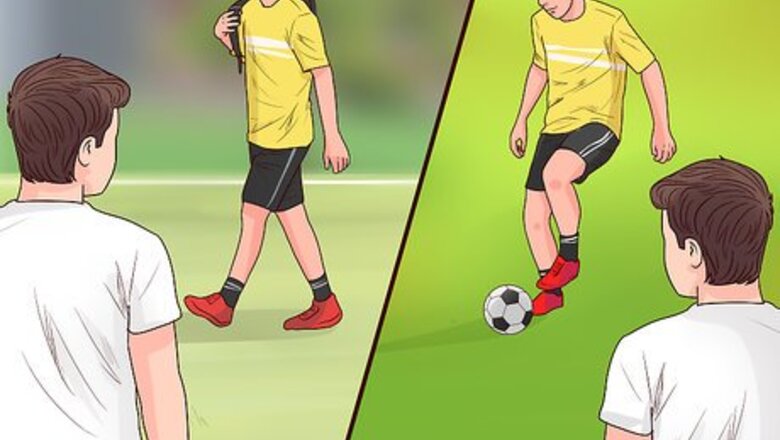
views
Showing Commitment
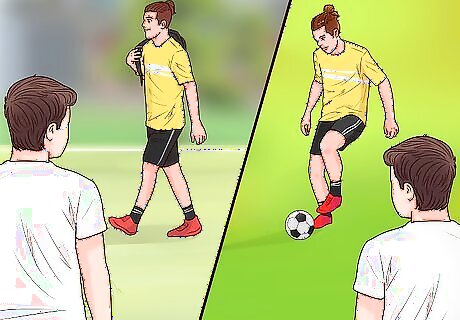
Arrive at practice early and leave later than your teammates. Get to practice 10-15 minutes early to start warming up or to help your coach set up. Once practice is over, stay a few minutes after everyone else has left to keep shooting or practicing drills. Your coach will notice your extra dedication.
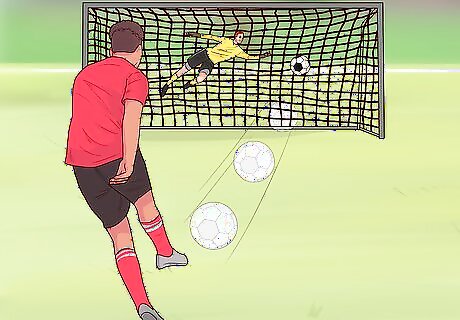
Take initiative during games or practices. As a team player, start making things happen on the field. Score goals when possible, play a great defense, and assist your teammates whenever you can. For example, if you notice an opportunity to take a shot, go for it! While you should be taking as many chances as possible, this doesn’t mean hogging the ball or being a selfish player.
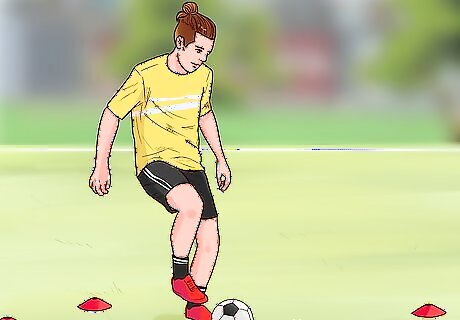
Show that you want to improve by putting in extra work. Your coach needs to see that you’re willing to put in the work to become a better player. Try putting in time outside of practice to train on your own, setting a practice schedule for yourself and sticking to it, or asking your coach for help when you’re struggling with new skills.
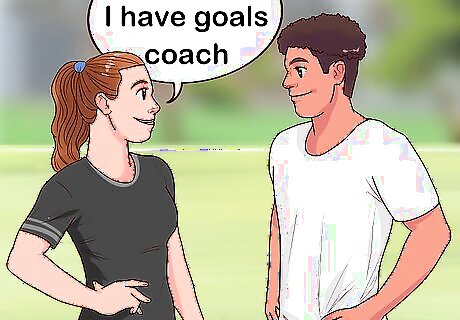
Discuss your goals with the coach. Have a conversation about techniques you’re hoping to improve, tactics you’ve been struggling with, or your overall goals for the season. When your coach hears that you’re really thinking about soccer and how to help your game, they'll be even more impressed. Ask your coach any questions you have that might help you—coaches are a great reference, and this is what they’re here for!
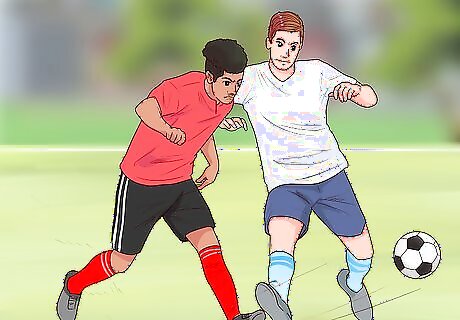
Take practices seriously by treating them like a real game. While it can be easy to be a little more relaxed during practice, try to give practices 100% of your effort and energy. Avoid slacking off and behave as you would during a real game so your coach will see that you’re taking things seriously.
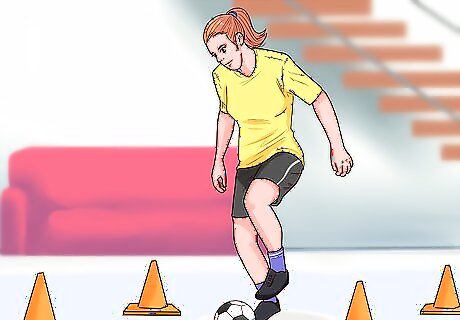
Practice drills at home. Even if your coach can’t see you practicing, your hard work will show off during real practices and games as you improve. Set aside time to practice some soccer drills at home, either by yourself or with a friend or teammate. Ask your soccer coach which drills you should focus on, if desired.
Being a Good Teammate
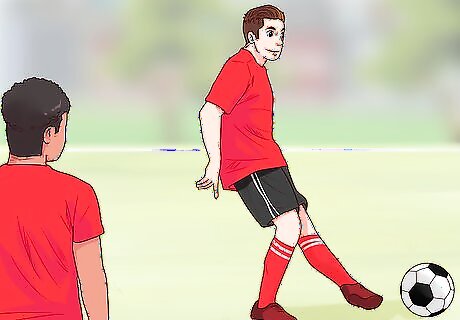
Lead by example. Instead of just telling your teammates what to do, physically do it yourself as well. A great leader shows what should be done instead of just talking about it. For example, don’t just tell other teammates they need to pass more. Make sure you’re passing a lot as well, and they’ll notice this and pass as well.

Communicate with the other players. When you’re on the pitch, try to talk as much as possible to keep everyone up-to-date with what's going on around them. Being vocal will show your coach you’re ready and willing to work with your team. For example, say, "Man on!" when there's a defender approaching the ball handler, or, "Carry!" when the ball handler has a clear path. Let your teammates know when you're open so that they can pass the ball to you.
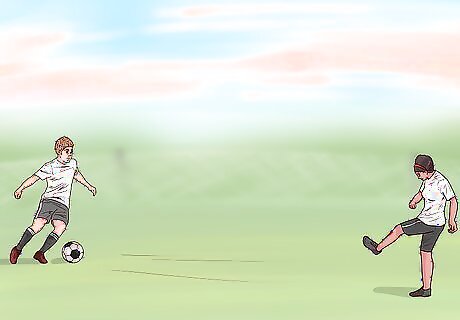
Trust your teammates. Focus on helping the team as a whole, not just yourself as a player. Pass to your teammates when possible and necessary, and trust them to play smart as well. Your coach will appreciate your selfless game play. Instead of getting upset or confused when a teammate isn't passing to you, trust that they're doing their best to help the team.
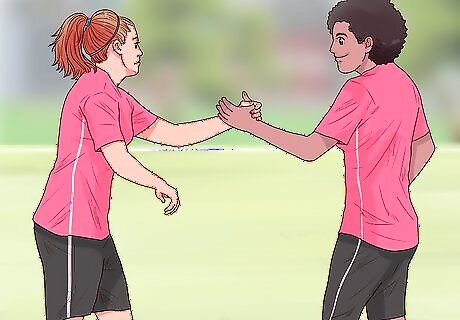
Show respect on and off the field. Listen when others are talking to you, whether it’s a coach, referee, or other teammate. Show respect by looking people in the eyes, shaking players’ hands, and avoiding trash talk. Your coach will be impressed by your maturity. If you lose a game, congratulate the other team and don’t mope around or get angry. Respect the referees and other officials when they make a call you don’t agree with.
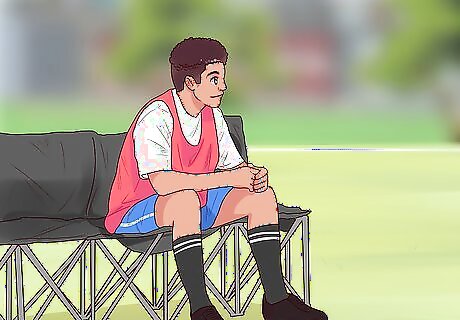
Portray positive body language and have a great attitude. If you’re on the bench, don’t be grumpy that you’re not playing. Pay attention to the game. Be supportive and cheer on your teammates, whether on or off the field. Your coach will notice your positive attitude and willingness to help the team.
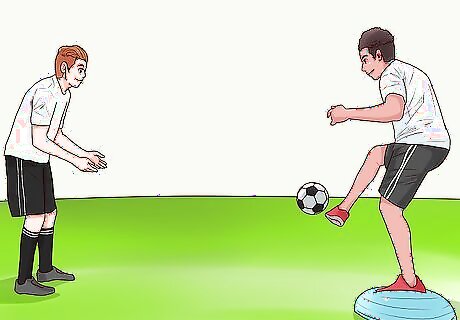
Help your teammates. Cheer for your teammates on the field and motivate them when they're feeling down. Work with your teammates on drills or new skills so that you're all improving together. If there are members of your team who are shy or less involved, get to know them and help bring them into conversations with the rest of the team.
Keeping an Open Mindset

Learn new techniques or skills. Great soccer players never stop learning new tricks and techniques. Ask your coach for tips on how to improve your game, or go online to find out methods to make your game play better. Watching professional soccer games is a great way to learn techniques and improve your skill set.

Listen to constructive criticism. It can be hard to hear someone tell you that you're struggling with a skill or that you should do something differently. Listen calmly when your coach tells you ways you could improve, and thank them for their input. After your coach tells you something you should work on, you can say something like, "Thanks for the advice coach, I'll definitely practice those skills more."

Be a coachable player. Whether or not you can take directions, be positive, and apply advice is very important to coaches. Prove that you want to learn from your coach by incorporating the coach's tips and advice into your game play. For example, if your coach tells you to work on your skills with your non-dominant foot, use your non-dominant foot during the next practice. This shows that you are willing to listen to their advice. If your coach comments on how your team should be supporting each other more, start cheering for your teammates when you're on the sidelines, or give words of encouragement during a game or tough practice.



















Comments
0 comment